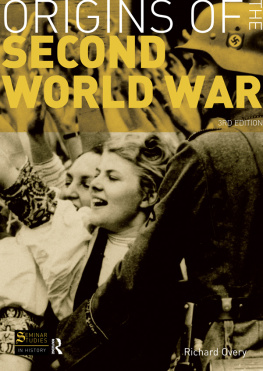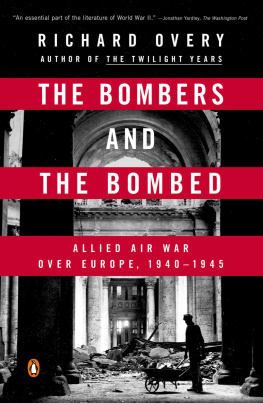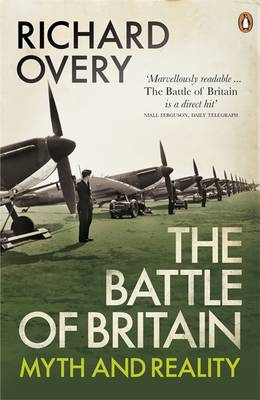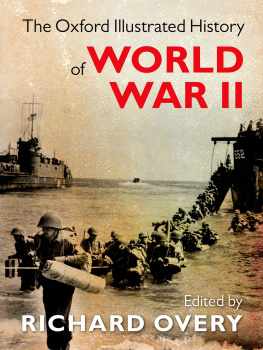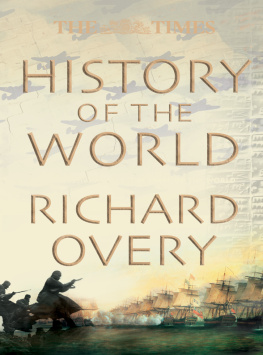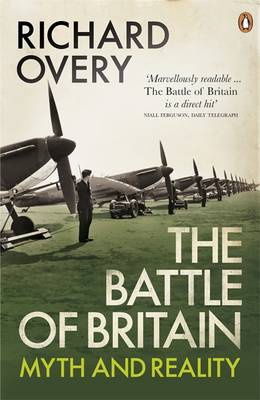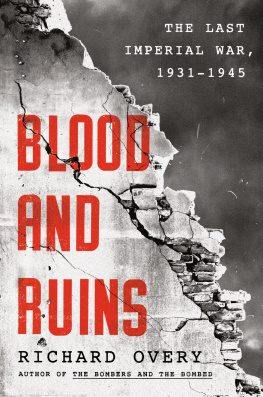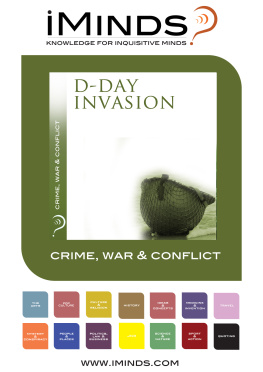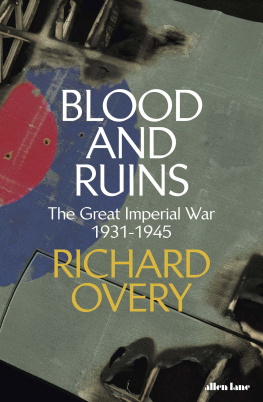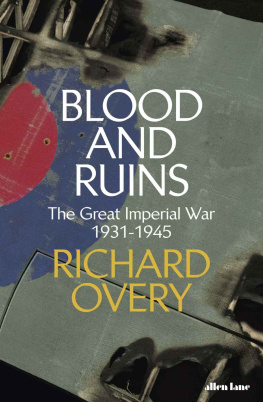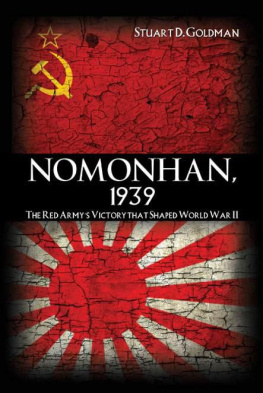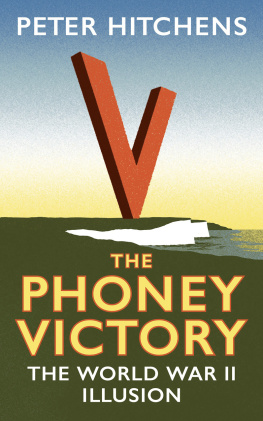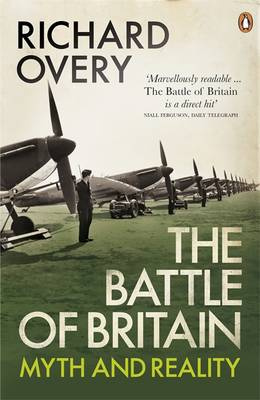The Origins of the Second World War
The Origins of the Second World War
Third Edition
Richard Overy

First published 1987 by Pearson Education Limited
Second edition 1998
Third edition 2008
Published 2013 by Routledge
2 Park Square, Milton Park, Abingdon, Oxon OX14 4RN
711 Third Avenue, New York, NY 10017, USA
Routledge is an imprint of the Taylor & Francis Group, an informa business
Copyright 1987, 1998, 2008, Taylor & Francis.
The right of Richard Overy to be identified as author of this work has been asserted by him in accordance with the Copyright, Designs and Patents Act 1988.
All rights reserved. No part of this book may be reprinted or reproduced or utilised in any form or by any electronic, mechanical, or other means, now known or hereafter invented, including photocopying and recording, or in any information storage or retrieval system, without permission in writing from the publishers.
Notices
Knowledge and best practice in this field are constantly changing. As new research and experience broaden our understanding, changes in research methods, professional practices, or medical treatment may become necessary.
Practitioners and researchers must always rely on their own experience and knowledge in evaluating and using any information, methods, compounds, or experiments described herein. In using such information or methods they should be mindful of their own safety and the safety of others, including parties for whom they have a professional responsibility.
To the fullest extent of the law, neither the Publisher nor the authors, contributors, or editors, assume any liability for any injury and/or damage to persons or property as a matter of products liability, negligence or otherwise, or from any use or operation of any methods, products, instructions, or ideas contained in the material herein.
ISBN: 978-1-4058-2469-9 (pbk)
British Library Cataloguing-in-Publication Data
A catalogue record for this book is available from the British Library
Library of Congress Cataloging-in-Publication Data
Overy, R. J.
The origins of the Second World War / RJ. Overy. 3rd ed.
p. cm.
Includes bibliographical references and index.
ISBN-13: 978-1-4058-2469-9
1. World War, 1939-1945 Causes. 2. Europe Politics and government 19181945. I. Title.
D741.O84 2008
940.5311dc22
2008006011
Introduction to the Series
History is a narrative constructed by historians from traces left by the past. Historical enquiry is often driven by contemporary issues and, in consequence, historical narratives are constantly reconsidered, reconstructed and reshaped. The fact that different historians have different perspectives on issues means that there is also often controversy and no universally agreed version of past events. Seminar Studies in History was designed to bridge the gap between current research and debate, and the broad, popular general surveys that often date rapidly.
The volumes in the series are written by historians who are not only familiar with the latest research and current debates concerning their topic, but who have themselves contributed to our understanding of the subject. The books are intended to provide the reader with a clear introduction to a major topic in history. They provide both a narrative of events and a critical analysis of contemporary interpretations. They include the kinds of tools generally omitted from specialist monographs: a chronology of events, a glossary of terms and brief biographies of whos who. They also include bibliographical essays in order to guide students to the literature on various aspects of the subject. Students and teachers alike will find that the selection of documents will stimulate discussion and offer insight into the raw materials used by historians in their attempt to understand the past.
Clive Emsley and Gordon Martel
Series Editors
This is now the third preface in the history of this Seminar Studies volume, each separated by a decade of further scholarly argument about the issues that surround the coming of the Second World War. In this sense the preface is a kind of report on how the subject has developed, decade on decade. The changes have been far less dramatic in the ten years since the second edition. This is partly because much of the new archival material coming out of the former communist bloc had already been incorporated into the western writing in the 1990s, but it owes something to changing historical fashions. Diplomatic and military history no longer attracts the attention it got when this volume was first written. Historical writing has moved on to embrace many areas of experience that touch on issues of war only at a tangent. Nonetheless there have been important shifts in emphasis. The role of Italy in the approach to war has been subject to greater re-evaluation than any other; there are still revelations about Soviet policy in the 1930s, but above all the first serious studies of Soviet military planning and preparations; the arguments about Chamberlain and appeasement have become more sophisticated, and in an age where world war seems remote and unthinkable a new generation may think more kindly of his profound conviction that war was beyond all human reason. The question that may well tease historians now is simply why, if the overwhelming majority of people and rulers did not want war, their collective efforts were unable to achieve that end. For anyone who marched in 2003 against the Anglo-American war in Iraq, this question will have a particular echo.
In broad terms, however, the approach to the subject has not changed. Historians, whether they are sympathetic or not to the choices made by Britain and France in the 1930s, are generally agreed that domestic constraints played some part in shaping those decisions. The consequences of economic crisis and imperial insecurity are now central parts of any explanation of the international crisis in the 1930s, and particularly for the attitude of western governments to the change in the balance of power brought about by a resurgent Germany and an expansionist Italy and Japan. I have maintained the same broad analytical framework adopted in the first edition, with its emphasis on an international order in crisis, rather that the familiar tour through one episode after another in the 1930s. War in 1939 was not in any sense pre-determined. It emerged as a result of a complex interplay of a great many factors, but other outcomes might have been possible. I have tried to open up some of these different perspectives and in doing so to avoid distorting through hindsight the realities of the international order.
As before, I should like to offer here a general acknowledgement of my debt to other historians whose work I have compressed and simplified here, perhaps beyond recognition. My thanks go out to many colleagues and students who over the years have argued out the issues discussed here, disagreeing as often as not. I would like to thank Geoffrey Roberts for his kind assistance in improving the history of Soviet foreign policy in these pages. Though Roger Lockyer is no longer the general editor of the series, I remain grateful for all his encouragement and helpful editorial advice when this book went through its first edition.
Richard Overy
February 2008
The publishers would like to thank the following for permission to reproduce copyright material:
Extracts from an Air Staff memorandum (AIR 14/225), a memorandum for the chiefs of staff (AIR 9/105, pp. 67, 41) and a letter to Admiral Lord Chatfield (FO 371/23073, ff203208), The National Archives, Crown copyright material in the Public Record Office is reproduced by permission of the Controller of Her Majestys Stationery Office.
Next page
